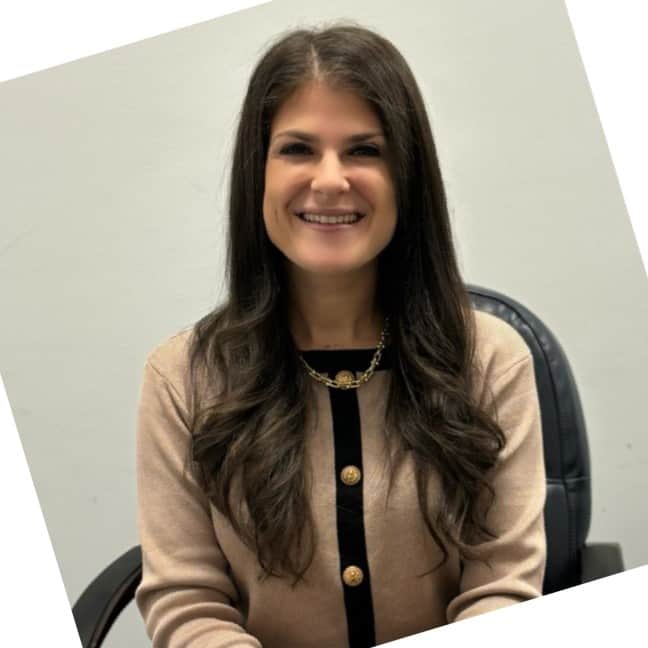How Do People Get Addicted to Heroin?
Heroin abuse often begins in a manner that many find surprising: through the use of prescription painkillers. According to the National Institute on Drug Abuse, prescription opioid use is a risk factor for heroin addiction. Initially, these medications are prescribed by doctors for legitimate pain management following surgery, injury, or for chronic pain conditions. However, the progression to heroin addiction often occurs because both prescription opioids and heroin share similar active properties, capable of producing intense feelings of euphoria by acting on the same brain receptors.
Over time, as the body builds tolerance to the prescription medication, individuals may seek out more potent alternatives to achieve the same effect, leading to heroin use disorder due to its availability and lower cost in comparison to prescription drugs. This shift from prescription opioids to heroin can happen to anyone, regardless of age, background, or socioeconomic status.
We’ve Helped Thousands of Individuals Overcome Drug and Alcohol Addiction
Identifying The Signs Of Heroin Addiction
Addiction often creeps in silently, making it imperative to recognize the early warning signs and seek professional help. Below are common indicators that someone may be struggling with heroin addiction (or addiction to other opioids) and could need to go to a heroin addiction treatment center:
Physical Signs
- Sudden weight loss: Unexplained and rapid weight loss may be a sign of heroin use disorder.
- Changes in appearance: Neglect of personal hygiene and appearance is common.
- Visible needle marks: Often found on the arms, but can also appear on other parts of the body.
- Heroin Withdrawal Symptoms: Nausea, vomiting, and diarrhea are signs of heroin withdrawal.
- Pupils: Changes in pupil size, such as constricted or pinpoint pupils, may indicate heroin use.
Behavioral Signs
- Secrecy and isolation: Withdrawing from friends and family members or being secretive about activities.
- Neglecting responsibilities: Skipping work, school, or failing to meet family obligations.
- Financial problems: Unexplained borrowing of money or selling possessions.
Psychological Signs
- Mood swings: Erratic behavior ranging from euphoria to hostility without an apparent reason.
- Anxiety and depression: Increased levels of distress, anxiety, or depressive episodes.
- Lack of focus: Difficulty concentrating or remembering things.
Recognizing these signs can lead to prompt intervention and significantly increase the chances of successful recovery.
Long-Term Effects of Heroin Addiction
Heroin addiction not only affects individuals in the short term but can also lead to severe long-term health and lifestyle consequences. Understanding these effects is crucial for comprehending the full impact of heroin addiction.
Physical Health Issues
- Chronic Respiratory Problems: Regular heroin use depresses breathing, which can lead to chronic pulmonary diseases.
- Cardiovascular Disease: Heroin addiction can lead to collapsed veins and bacterial infections of the blood vessels and heart valves.
- Liver and Kidney Disease: Long-term use can strain these organs, leading to significant health complications.
- Infectious Diseases: Sharing needles increases the risk of contracting HIV, hepatitis B, and hepatitis C.
- Malnutrition: Heroin can decrease appetite, leading to weight loss and malnutrition.
Mental Health Effects
- Depression: Long-term heroin use is often associated with depression.
- Anxiety Disorders: Users may experience heightened anxiety levels, both as a direct effect of the drug and due to lifestyle factors related to addiction.
- Cognitive Decline: Chronic use can lead to difficulties with decision-making, memory, and attention.
Social and Lifestyle Impact of Opioid Use Disorder
- Relationship Problems: Addiction can strain or destroy personal relationships, leading to social isolation.
- Employment Issues: Heroin addiction often causes job loss and financial difficulties, severely affecting one’s quality of life.
- Legal Problems: The activities necessary to obtain the drug can lead to legal issues, including arrest and imprisonment.
Dependence and Withdrawal From Opioid Use Disorders
- Physical Dependence: Over time, users develop a tolerance, needing more heroin to achieve the same effects, which can lead to physical dependence.
- Opioid Withdrawal Symptoms: When not using the drug, users may experience severe withdrawal symptoms, such as restlessness, muscle and bone pain, insomnia, diarrhea, vomiting, and cold flashes.
Understanding the extensive long-term effects of heroin addiction highlights the importance of seeking San Diego heroin rehab and emotional support for overcoming this condition.
Recovery Starts at Our Drug and Alcohol Rehab by Requesting a Call
"*" indicates required fields
The Threat Of Heroin Overdose
Heroin overdose is a serious risk for all users, largely due to the drug’s potent effect on the respiratory system. An overdose can reduce breathing to dangerously low levels or even cause it to stop, leading to hypoxia – a condition where the brain doesn’t get enough oxygen. This can result in coma, permanent brain damage, or death. Common signs of heroin overdose include:
- Shallow Breathing
- Blue Lips and Fingernails
- Disorientation or Delirium
- Choking/gurgling noises
- Pinpoint Pupils
- Weak Pulse
The Hidden Danger: Substances Mixed with Heroin
One of the most dangerous risks associated with heroin use is the unpredictability of its composition. Dealers often cut heroin with other substances to increase their profits, leaving users unaware of what they’re actually taking. This often includes:
- Fentanyl: A synthetic opioid up to 50 times more potent than heroin, fentanyl significantly increases the risk of overdose, often with fatal outcomes.
- Horse Tranquilizers: Substances like xylazine, used to sedate larger animals, can cause severe respiratory depression and aggravate the risk of overdose when mixed with heroin.
Understanding these risks and recognizing the signs of overdose are crucial steps in preventing tragedy and encouraging those struggling with addiction to seek help.
Treating Heroin Addiction At Right Path Recovery
At Right Path Recovery, our comprehensive approach to treating heroin addiction combines the latest in medical treatments with holistic care to address not just the physical aspects of addiction but the emotional and psychological factors as well. With a dedicated team of professional treatment providers, from medical doctors to counselors and support staff, we are committed to guiding each individual through their unique path to recovery. Here are the types of evidence-based treatment programs we offer at our heroin addiction treatment program in San Diego, CA.
Detoxification (Detox)
At our San Diego heroin rehab centers, our detox program is the first step towards healing from heroin addiction. Under medical supervision, patients safely undergo withdrawal from heroin, minimizing discomfort and ensuring safety. Our approach uses medication that targets the same opioid receptors affected by heroin use but does so in a controlled manner – usually a partial opioid agonist – to ease symptoms and cravings, as heroin is a highly addictive substance that causes very uncomfortable withdrawal symptoms.
Inpatient Heroin Addiction Treatment Center – San Diego, CA
Our inpatient heroin rehab centers provide a structured and supportive environment where individuals receive round-the-clock care and support. Inpatient rehab includes individual counseling, group therapy sessions, family therapy sessions, and other behavioral therapies to address the underlying causes of substance use disorder. We also teach coping strategies and make attempts to help the patient mend relationships affected by substance use. Many people who have been using heroin for a significant period of time need this type of San Diego heroin rehab program as opposed to outpatient programs at outpatient treatment centers.
Partial Hospitalization Program (PHP)
For those who require a high level of care but also need some degree of flexibility, our PHP offers structured heroin addiction treatment services during the day without the need for overnight stays. This program includes participation in group therapy sessions and ongoing medication management to reduce drug cravings and prevent relapse. Family sessions can be done here as well, if appropriate.
Dual Diagnosis Heroin Treatment – Co-Occurring Disorders
Recognizing that substance use disorders often co-occur with mental disorders, our dual diagnosis heroin addiction treatment center addresses both conditions simultaneously. By treating underlying mental health problems, we can improve recovery outcomes and help prevent relapse, ensuring a holistic approach to rehabilitation.
Aftercare and Support
Sustaining long-term sobriety requires ongoing support. Our aftercare services include continuous access to counseling, support groups, and resources designed to help maintain negative drug tests and manage life without dependence on substances. Reinforcing strategies learned during a drug abuse treatment program in San Diego, CA, our aftercare program focuses on relapse prevention and helps integrate clients back into their communities with confidence.
At our San Diego heroin rehab program at Right Path Recovery, we aim to provide comprehensive care that addresses the physical, emotional, and mental health aspects of addiction to this highly addictive drug. By combining these approaches, we help our clients build the foundation for a sustainable recovery and a life free from heroin addiction.
Preventing Heroin Relapse
To effectively prevent a relapse back to heroin use, it’s important to employ a comprehensive approach that encompasses various strategies. Here are some relapse prevention methods:
- Continuous Therapy and Counseling: Regular sessions with a therapist or counselor can provide ongoing support and strategies for coping with life stressors without reverting to substance abuse.
- Medication-Assisted Treatment (MAT): MAT involves the use of effective medications to support recovery. Medications such as methadone (opioid agonist) and buprenorphine (partial agonists) that activate opioid receptors in the brain are used, helping to reduce cravings and alleviating or preventing withdrawal symptoms. Naltrexone, an opioid antagonist, blocks opioid receptors and prevents the euphoric effects of heroin.
- Support Groups: Joining support groups, such as Narcotics Anonymous (NA) or other recovery-related groups, offers a sense of community and accountability.
- Healthy Lifestyle Changes: Adopting a healthy lifestyle, including regular exercise, a balanced diet, and adequate sleep, can improve physical and mental health, reducing the likelihood of relapse. We always encourage healthy living to help patients achieve sobriety.
- Avoiding Triggers: Identifying and avoiding situations, people, or places that trigger the urge to use heroin is crucial. This may include ending toxic relationships or finding new social circles.
- Stress Management Techniques: Learning and applying stress management techniques, such as mindfulness, meditation, or yoga, can help manage emotions and stress without resorting to drug use.
- Setting Goals and Pursuing Interests: Creating personal and professional goals and engaging in hobbies and activities that bring joy can provide motivation and a sense of purpose outside of drug use.
According to the Substance Abuse and Mental Health Services Administration (SAMHSA), research indicates that a combination of medication and evidence-based therapies can effectively treat opioid use disorders, and, in many cases, medications can help maintain recovery.
Contact Right Path Recovery For Help With Drug Abuse and Mental Health Treatment
If you or someone you know is struggling with heroin addiction or any form of drug abuse, it’s critical to recognize that help is available. Our heroin rehabs offer comprehensive and effective treatment and support services designed to address both the physical dependence on substances and the behaviors related to addiction.
Our compassionate team is dedicated to creating a customized treatment plan that can truly improve a person’s life. Contact Right Path Recovery today to begin the journey toward recovery and reclaim a life of health, happiness, and fulfillment. Remember, taking the first step towards seeking help is a brave and life-changing decision.

Insurance Can Cover up to 100% of The Costs of Addiction Treatment and Mental Health Care
Did you know that insurance can cover up to 100% of the costs of addiction treatment and mental health care? Our addiction treatment center accepts most insurance plans. For a free insurance benefits check complete our confidential insurance verification form by clicking the link below.













